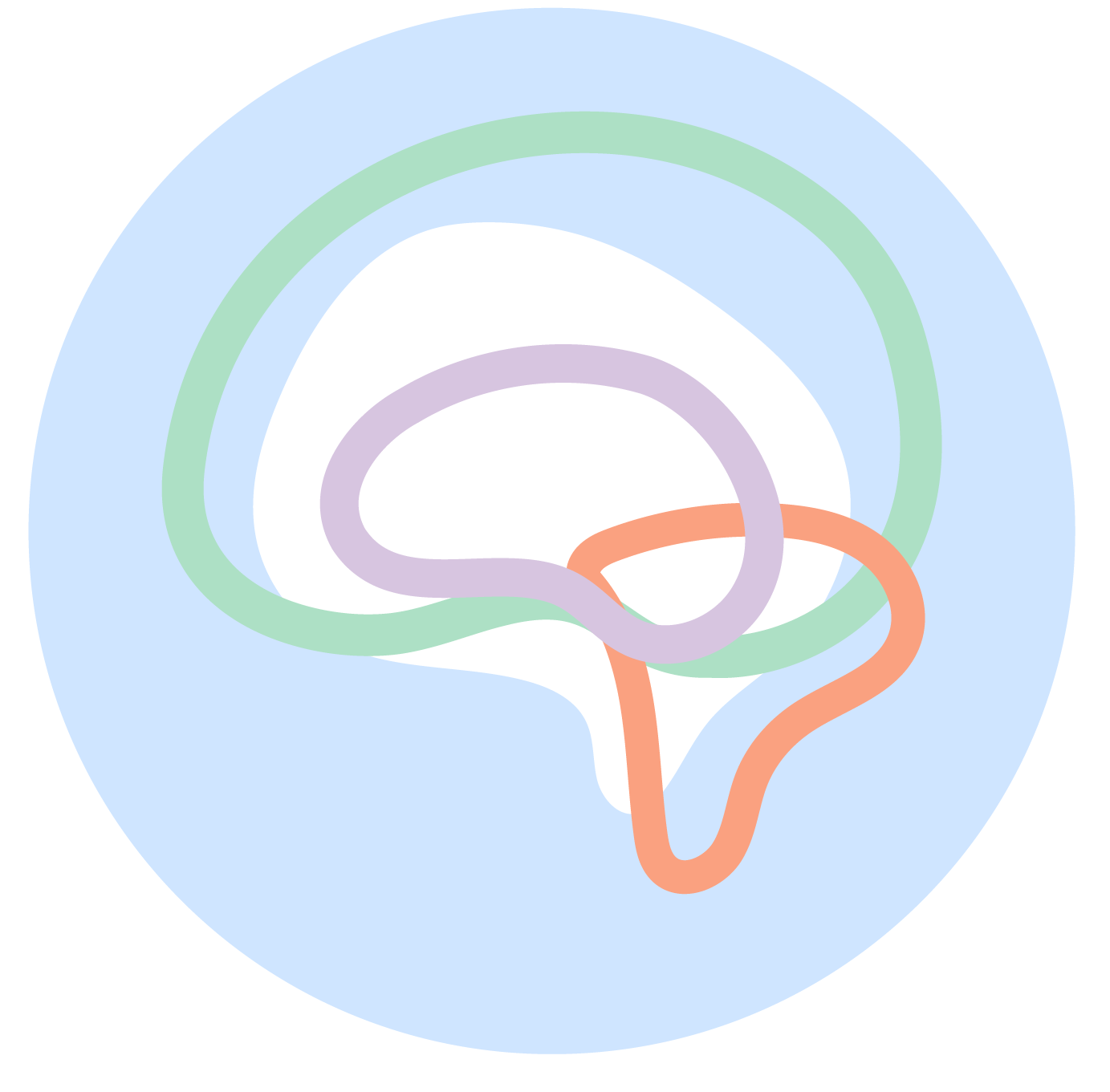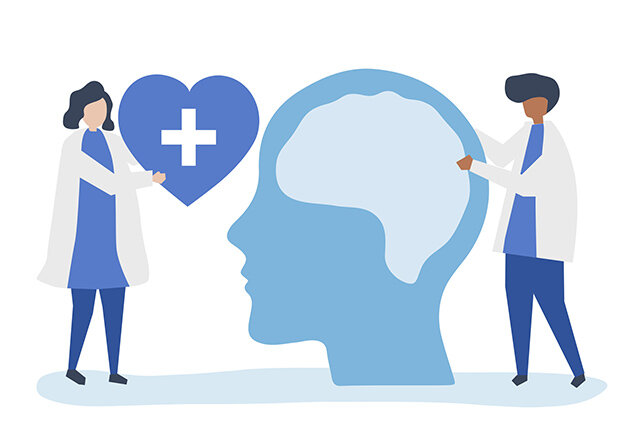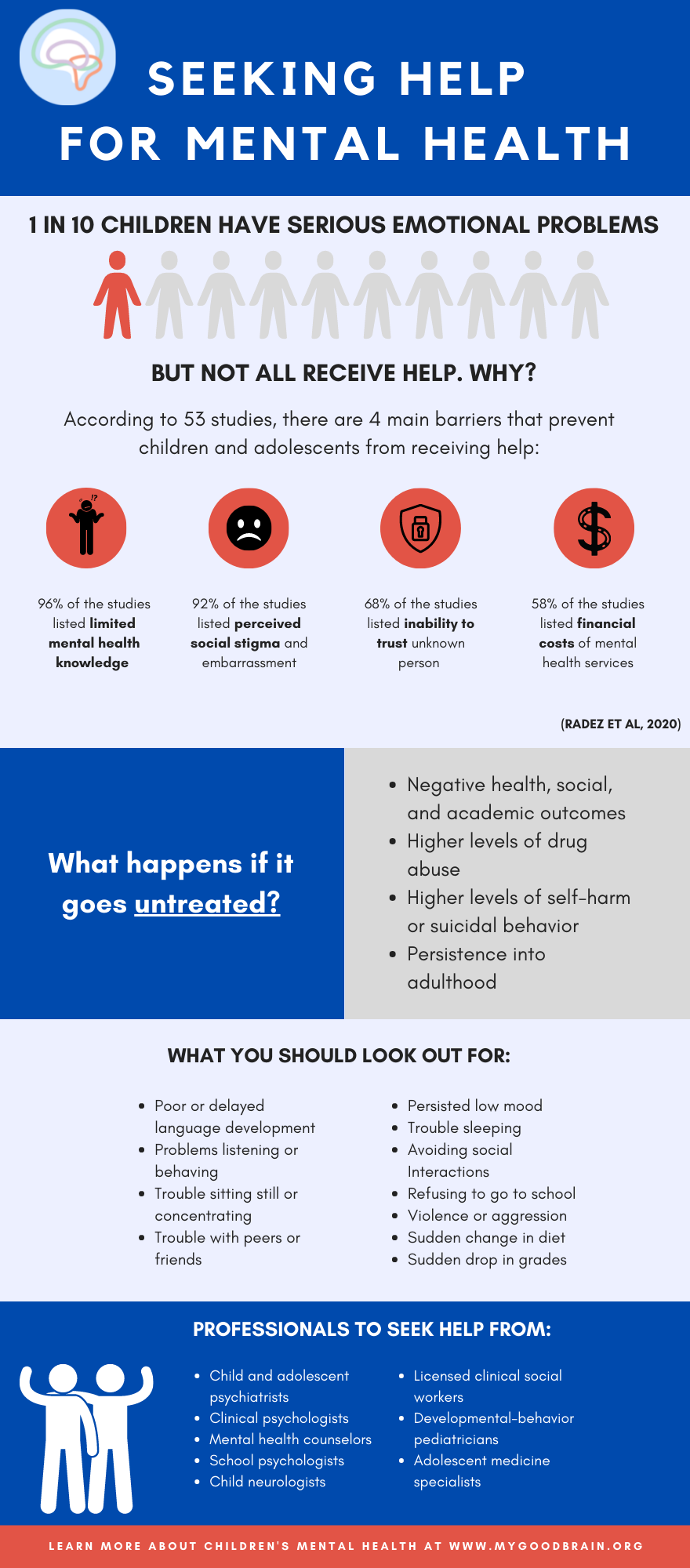Seeking Help for Mental Health
Happy September, folks! Hope you all had a fun and relaxing long weekend. Today’s post is about something very, very important — getting help!
Seeking medical help when you’re feeling sick or when you’re injured is expected. Yet, why do we not have the same expectations for our mental health? There is a huge disparity in the number of people that need professional help and the number of people that actually seek help. A misconception that many people have is that their mental health problems aren’t “serious enough” to go and seek help. This is completely false! Mental health problems don’t need to escalate to life-threatening situations in order for you to seek help for you or for your children.
Seeking help is a growing issue for children and adolescents across the world. Our younger generations may not know when to seek help or even how! It is up to us to create a safe physical and emotional space for them to reach out if they feel as though they need help. Help-seeking for mental health is something that unfortunately is not emphasized in their day-to-day school curriculum, so we created an infographic that may help you understand the importance of seeking help, symptoms to look out for, and a list of professionals that you can look into for help.
A list of online, affordable services to get help:
Crisis Lines (United States)
If you need help right now and you are in a crisis, please reach out to one of these lines via text or call.
Crisis Text Line, a text message therapy system with 24/7 crisis support: Text “HOME” to 741741.)
The National Suicide Prevention Hotline: 800-273-8255
National Helpline: 800-662-4357
Alcoholism & Drug Dependency Hope Line: 800-622-2255
Postpartum Depression: 800-773-6667 (1-800-PPDMOMS)
The Veterans Crisis Line: 800-273-8255, press 1
The Trevor Project for LGBTQ+ youth: 866-488-7386
Trans Lifeline: 877-565-8860
The National Sexual Assault Hotline: 800-656-4673
The National Domestic Violence Hotline: 800-799-7223
Eating Disorder Hotline: 800-931-2237
National Crisis Line for Anorexia and Bulimia: 800-233-4357
RAINN Sexual Assault Line: 800-656-4673
Planned Parenthood Hotline: 800-230-7526
National Runaway Safeline: 800-786-2929 (RUNAWAY)
Childhelp National Child Abuse Hotline: 800-422-4453 (24/7)


